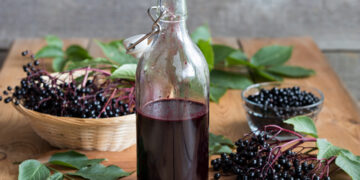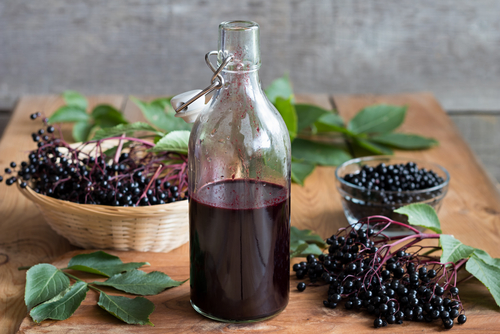A Season for Slowing Down
As the days shorten and a hush settles over the land, our bodies often call for the same quiet. Cold winds stir tired bones, and with them come sniffles, aches, and that unmistakable heaviness of the cold and flu season. In generations past, before the glow of pharmacy lights and foil-wrapped tablets, families turned to the cupboard and the garden for support. Warm broths, steamy teas, pungent syrups, and bittersweet tinctures—these were the first line of care, passed from hand to hand with trust and intention.
Herbs have long played a steady, nourishing role in helping us endure the colder months. While they don’t promise a cure, they do offer strength: easing symptoms, shortening recovery time, and gently encouraging the body’s natural defenses to rise. And with a little preparation, many of these remedies can be made at home—familiar, comforting, and entirely your own.
Ad Spot #1
(Insert your first promotional element here.)
Nature’s Cold-Weather Allies
Among the herbs most beloved for winter wellness are elderberry and echinacea, two stalwart protectors known both in folk medicine and modern herbalism. But they’re not alone. Let’s meet a few of the quiet heroes of the apothecary shelf.
Elderberry (Sambucus nigra)
Small, dark, and rich with antioxidants, elderberries have been used for centuries to support the immune system. In syrup form, they help reduce the severity and duration of colds and flus. The berries contain compounds that may inhibit viral replication and support respiratory health.
Elderberry works best when taken at the first signs of illness—or daily as a preventive during flu season. It’s particularly beloved by children, thanks to its natural sweetness when simmered into syrup.
Echinacea (Echinacea purpurea)
This spiky, purple-flowered plant has roots in Native American medicine and has become a staple for immune support. Echinacea works by stimulating the body’s own immune defenses, particularly in the early stages of infection. It shines when used short-term during acute illness.
Taken as a tincture or tea, echinacea can help reduce inflammation in the throat and speed recovery.
Ginger (Zingiber officinale)
Warming, spicy, and deeply invigorating, ginger brings heat to a sluggish, congested system. It promotes circulation, eases nausea, and supports the respiratory tract. Whether sliced fresh into tea or simmered into a honey syrup, ginger is a winter essential.
Thyme (Thymus vulgaris)
This kitchen herb carries strong antimicrobial properties and is a trusted ally for coughs and congestion. It works especially well in steams, teas, and syrups for sore throats and bronchial tightness.
Licorice Root (Glycyrrhiza glabra)
Soothing to the mucous membranes and lightly sweet, licorice root offers anti-inflammatory support and can ease dry, irritated throats. Use sparingly if managing high blood pressure, but in small amounts, it blends beautifully with other herbs.
Kitchen Apothecary: Recipes to Keep Close
When the chill sets in and symptoms begin, having a few homemade remedies on hand can make all the difference. Here are some tried-and-true recipes to carry you through the season.
Elderberry Syrup
A gentle, sweet-tart syrup that supports immunity and soothes the throat.
You’ll need:
-
1 cup dried elderberries
-
3 cups water
-
1 cinnamon stick (optional)
-
3–4 slices fresh ginger
-
1 cup raw honey
Instructions:
-
Combine berries, water, cinnamon, and ginger in a saucepan.
-
Simmer uncovered for 30–40 minutes, until liquid reduces by half.
-
Strain, pressing berries to extract all liquid.
-
Let cool slightly, then stir in honey.
-
Store in a glass jar in the fridge for up to 2 months.
Use:
1 tablespoon daily for prevention, or every few hours during illness.
Immune-Boosting Tea
A warming infusion for the early signs of illness.
You’ll need:
-
1 tsp dried echinacea
-
1 tsp dried elderflower or lemon balm
-
½ tsp dried ginger
-
1 tsp dried thyme
-
Raw honey and lemon, to taste
Instructions:
-
Combine herbs in a teapot or jar.
-
Pour over 2 cups boiling water, cover, and steep 10–15 minutes.
-
Strain, add honey and lemon if desired, and drink warm.
Sip slowly, wrapped in something soft, and let the herbs work quietly within.
Thyme Steam Inhalation
Ideal for congestion, sinus pressure, or chest tightness.
You’ll need:
-
1 tablespoon dried thyme (or a handful of fresh)
-
A bowl of steaming water
-
A towel
Instructions:
-
Add thyme to the hot water.
-
Lean over the bowl, covering your head and the bowl with the towel.
-
Breathe deeply for 5–10 minutes, eyes closed.
This simple ritual opens airways, loosens mucus, and offers peace to a foggy mind.
Ad Spot #2
(Insert your second promotional element here.)
A Thoughtful Approach to Herbal Care
While these herbal remedies are rooted in safety and tradition, they are still medicines—subtle, yes, but powerful in their own right.
Always take care when working with herbs, especially if pregnant, nursing, or managing chronic conditions. Some herbs (like licorice root) are not suitable in large doses or for long periods. Begin slowly, listen closely, and seek guidance from a trained herbalist or healthcare provider when needed.
Most importantly, know that these plants work best in relationship—with warmth, with rest, with nourishment. They are not quick fixes. They are companions for the journey back to balance.
In the Gentle Hands of Nature
The cold months will come, as they always do. But within them, we can find a rhythm of tending—not just to the body, but to the spirit. A well-timed cup of tea, a spoonful of syrup made by your own hands, a warm towel steeped in thyme—these are not just treatments, they are care made visible.
And there’s something healing in that alone.
In creating space for herbs during this season, you invite a different kind of medicine—one that honors slowness, connection, and the quiet resilience of the body.
Let the fire glow, let the tea steep. You have what you need.



























